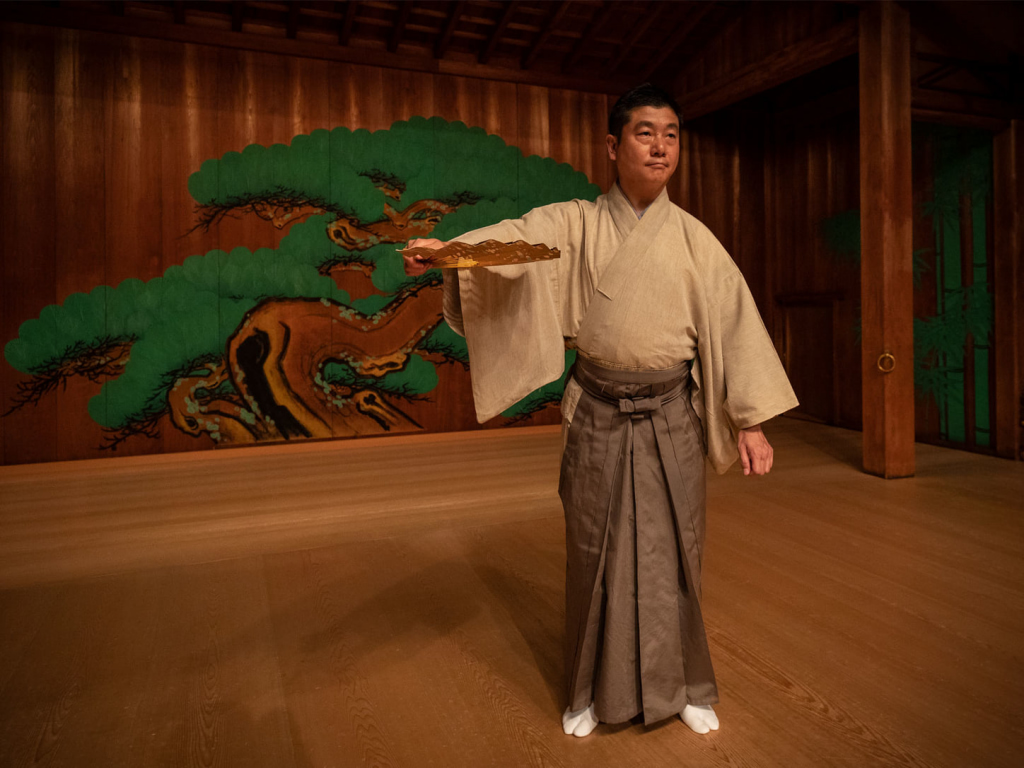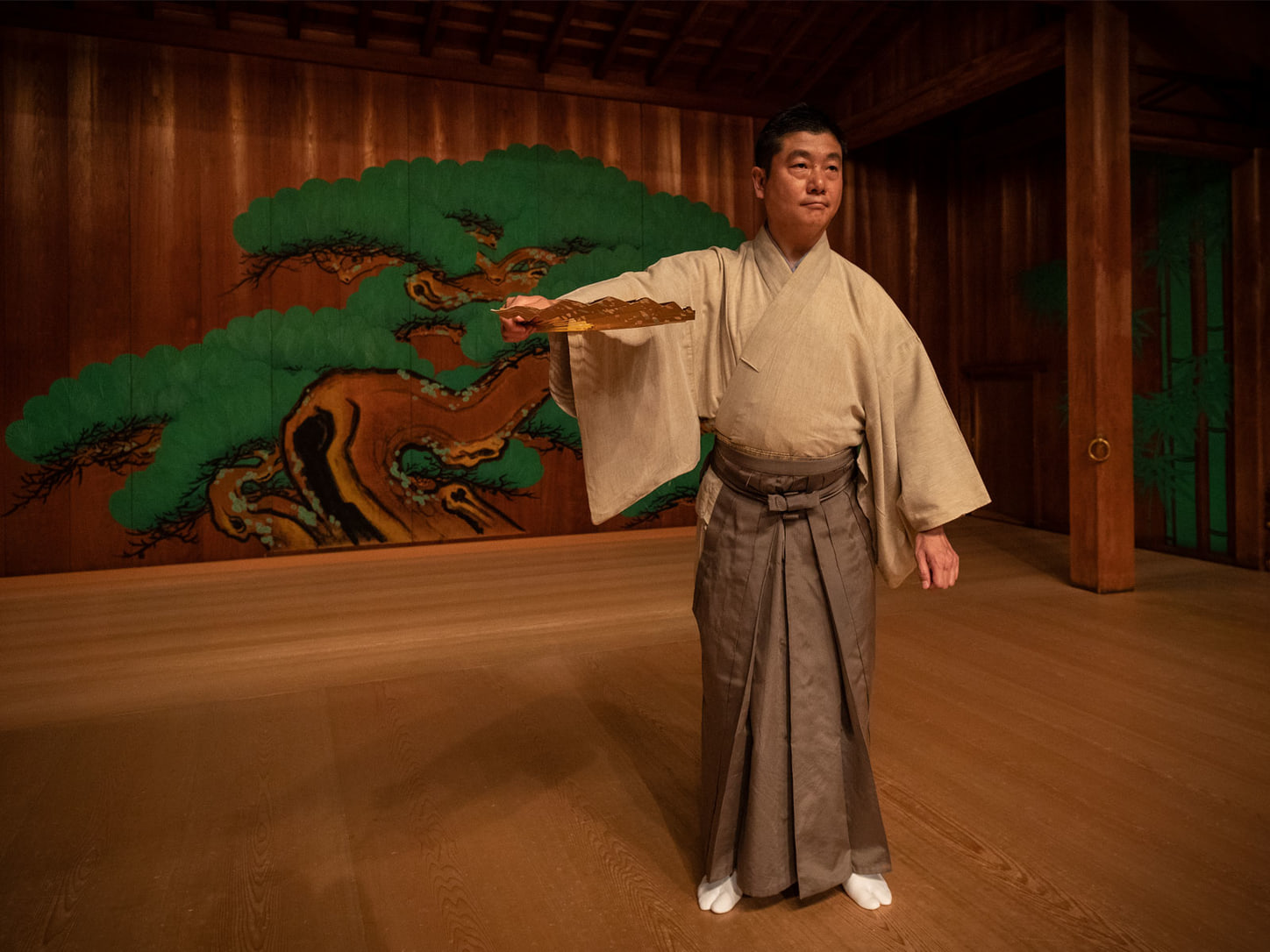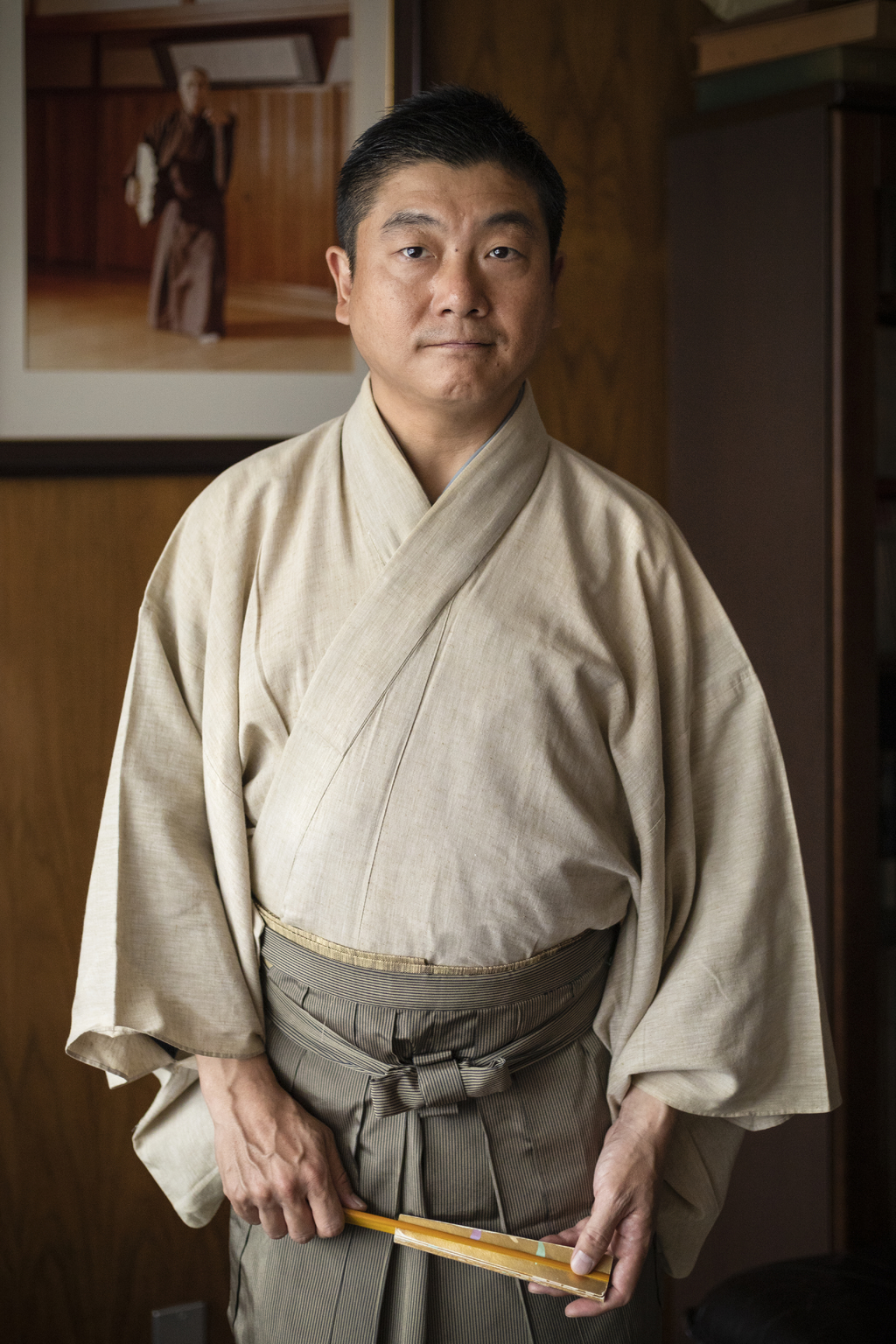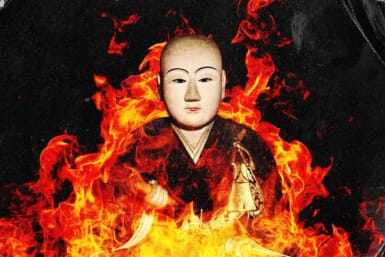“I still get nervous before shows,” says Takehito Tomoeda. Watching him strike a solemn, assured pose on the traditional wooden stage at Kita Noh Theatre in Meguro, it’s hard to believe this veteran noh actor and teacher could be afflicted by performance anxiety. After all, the stage has been like a second home to him since he was a three-year-old child actor. But, as he explains, when you’re tasked with upholding a 600-year-old Japanese tradition, all the while the gods casting an adjudicatory eye down on you, there’s always room for a few fresh nerves.
What is a typical day or week like for you?
My entire life right now is concerned with noh, not only practice and performing but also teaching. In a normal week, I try to keep the mornings free for myself and dedicate the afternoons and evenings to work. I perform every Saturday and Sunday, and to prepare for that I rehearse every Thursday and Friday. The other days it’s a combination of practicing by myself and also teaching. At the moment, there’s additional work as we are also holding night and holiday performances.
In theaters such as Broadway you usually have multiple showings of the same play on one day, running for weeks at a time, but for a noh production, it’s a single, one-day-only play. What this means is I am constantly practicing for new plays, around 10 at any one time. There are about 100 different noh plays, the classic ones that every actor knows… so for these, we only have to run through them once before a performance, even though we play different roles each time.
“My family has been performing noh since the Edo period so for me it was as normal as waking up and eating breakfast”
Why did you choose this job?
Actually, I didn’t choose this job. My family has been performing noh since the Edo period so for me it was as normal as waking up and eating breakfast.
What’s the most important aspect of being a noh actor?
The biggest thing by far is you need to like noh. If you’re a movie actor, for example, you have to believe that film is the best medium of expression. It’s the same with noh – you have to feel that noh is the best form of expression.
How do you become a noh actor?
There are many different schools of noh and they all differ in the way that they tell the story. In my case, I started as a child actor so there wasn’t much discussion about the different schools; it was more a case of “repeat after me” so I learned that way. Although my father was a teacher, the Kita school discourages being taught by family members, so I was taught by the school master. In the same way, I’m not teaching my own son.
If you learn as a child, the acting is easy and feels natural. It gets harder, though, when you reach puberty because we have growth spurts, our voices drop, and we might become shy to perform in front of audiences. You also have to switch from performing child roles to adult roles. At that point you have to start to focus on more than just the words but also on refining your technique. It can take up to three years to transition through this period and start performing professionally again.
What’s the best part of the job?
Not having to wake up early in the morning. [Laughs] If you’re not an actor or have never been on stage, it’s hard to understand, but bringing joy to the audience is my favorite part of the job. Of course, there are times it doesn’t work out and your performance is not as good as you’d like it to be, but I liken the experience to a marathon runner who says, “This will be my last marathon” but then 10 minutes after the end of the race he’s thinking, “Which marathon am I going to run next?”
What’s the hardest part of the job?
The method of acting is the hardest part. Noh is not known for its fascinating plot lines; it’s more about the characters and the human condition. Even though there are the 100 classic noh plays that every actor learns, the way that you’ll play any role when you’re 18 versus when you’re older will naturally change as you gather more life experience. So your method of acting has to continuously evolve.
What makes noh so special?
As you may know, noh has been around for about 600 years and originally it was a performance to the gods. So the job of the noh actor was not only to provide a show to the audience but also to appeal to the gods. From that point of view, not much has changed. The theater itself is seen as a sanctuary, so just being inside there and performing on the stage is a sacred – and nerve-wracking – experience.
What’s in the future for noh?
Japanese traditional arts have been losing their audience over a number of years. We know that there are parts of these arts that don’t match up with modern times and forms of entertainment. We’re using old literary terms that even Japanese people don’t understand any more. So now that we’re in the new Reiwa period, we’re looking for ways to update noh while staying true to its roots.
For more information about Takehito Tomoeda and the Kita Noh Theatre, go to tomoeda-kai.com and kita-noh.com
Compiled by Annemarie Luck and Lisa Wallin
Photographs by David Jaskiewicz
This article was originally published in 2019 and updated July 2021.










